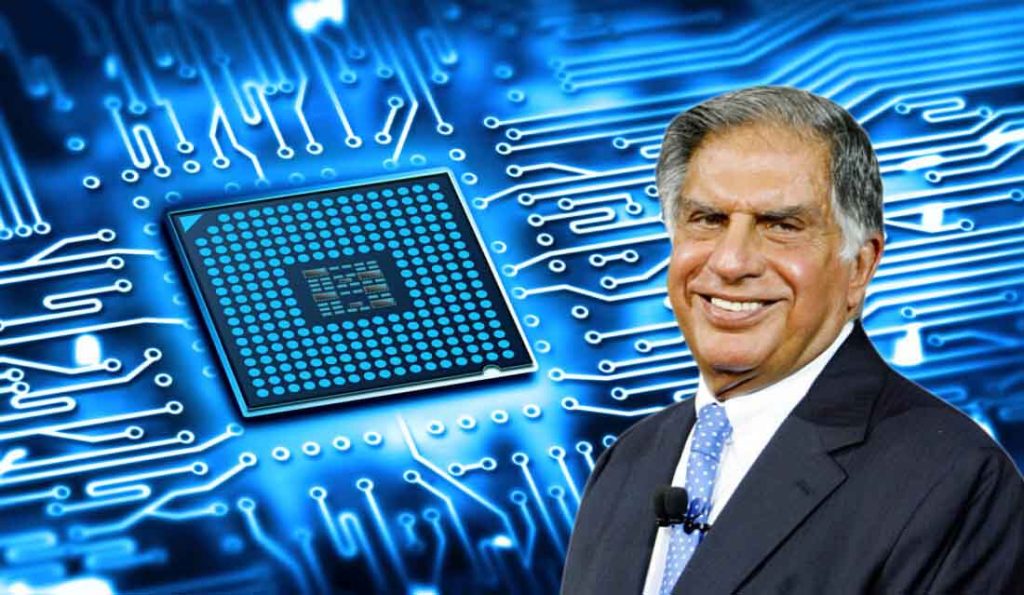One of the country’s most prominent business groups Tata Group is set to enter chip production. According to a report in Nikkei Asia, Tata Group will begin producing semiconductors in the country within a few years. Tata Sons Chairman Natarajan Chandrasekaran confirmed the same to the publication in an interview.
The company is likely to tie up with semiconductor manufacturers and foundries in the US, Japan, Taiwan, and South Korea are potential partners in the project. The confirmation comes just days after reports that Apple is getting into iPhone assembly in India. The group is reportedly in talks to buy Wistron Crop’s only manufacturing facility in India for up to 50 billion rupees ($612.6 million).
The company has revealed that Tata Group will look at manufacturing its own cheapest in India within a few years. As per a new report by Nikkei Asia, Tata Sons Chairman Natarajan Chandrasekaran said that the company was engaging in discussions with “multiple players,” regarding partnerships with existing chip manufacturers.
In the interview, Chandrasekaran pointed out that the company has set up Tata Electronics, “under which we are going to set up a semiconductor assembly testing business.” Tata has already announced a partnership with Tokyo-based Renesas Electronics in June this year, noted the report, which is based on semiconductor design and development. He added that the company is working on launching new businesses in emerging fields, including EVs (electric vehicles) as well.
“We will have discussions with multiple players,” the chairman added, raising the possibility of partnerships with existing chip manufacturers. Launching a chipmaking business on its own is a challenge for an inexperienced company. Semiconductor manufacturers and foundries in the U.S., Japan, Taiwan, and South Korea are seen as potential partners. Tata already announced a semiconductor design and development partnership with Renesas Electronics in June.
Chandrasekaran also said Tata will “look into the possibility of eventually launching an upstream chip fabrication platform.” The upstream process of wafer fabrication is more challenging both technologically and financially than the downstream steps of assembly and testing.
Tata’s move into chipmaking will break new ground for India, where the semiconductor market is set to more than double between 2021 and 2026 to $64 billion, according to the India Electronics and Semiconductor Association and others. The country now has virtually no semiconductor industry, other than software-based design, although demand for semiconductor-intensive products such as smartphones and electric vehicles is growing rapidly.
Momentum is building to diversify chip supply chains, which are at present concentrated in East and Southeast Asia, following the global chip shortage and U.S.-China tensions. The ongoing U.S.-China “decoupling” in chip-related technology is leading major chipmakers to seek more diversified supply-chain locations. Both Tata and the Indian government sought to capitalize on this shift to position the country as a new semiconductor hub.
Chandrasekaran explained that his group has been promoting its “future ready” strategy, in which existing group companies, from steel to arms, adapt to new challenges such as digitization and climate change while also launching new businesses.
“If you look at the whole group, there are primarily three important initiatives. The first one is to strengthen the core companies, the second is to transition the core to the future, and the third is an investment in future business.”
Elaborating on the second point, he said the transition involves:
“preparing them for, number one, the digital world. The second is a transition for future energy and sustainability. The third is a transition toward resilience in supply chains.”
As part of that effort, the chairman revealed that the group plans to invest $90 billion over the next five years. In addition to semiconductors, the chairman said the company is in the process of starting new businesses such as the manufacturing of electric vehicles and EV batteries, the production of renewable energy, and the development of “super apps” that allow users to buy goods and services from groceries to financial products.
Venturing into chipmaking could benefit Tata’s core IT and auto businesses, which depend heavily on imported semiconductors. Securing a stable supply has been a particular challenge for the latter. Production and sales in India’s auto industry as a whole both slumped last year amid the global chip shortage.
That will only become a bigger issue for Tata as it pivots to electric vehicles, which require more semiconductors than their counterparts with internal combustion engines. Though Tata Motors’ share of India’s overall passenger-vehicle market stood at less than 20% last fiscal year, it accounts for nearly 90% of EV sales in that space.
“I expect by 2027, EV sales will cross IC engine sales,” faster than Tata’s public prediction of 2030, Chandrasekaran said.
He also said the group wants to unify the management of Air India the national flagship airline that it has bought back from the government and Vistara and AirAsia India, which are also in the group. However, he did not say whether this meant combining their brands, simply stating that it was an issue “up for discussion going forward.”
Read More:





 Dyson’s Zone Air Purifying Headphones Start At $949
Dyson’s Zone Air Purifying Headphones Start At $949